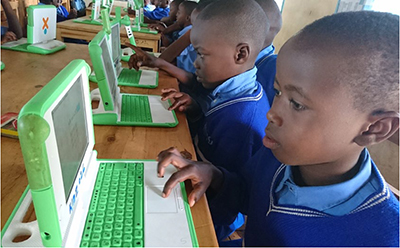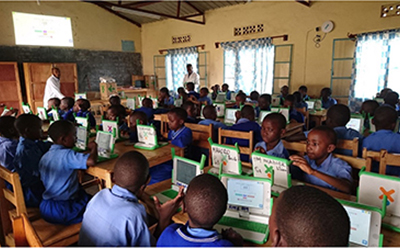FY2020 MOFA ODA Evaluation Results
Evaluation of Japan’s ODA to Rwanda
| Chief Evaluator | Prof. INADA Juichi School of Economics, Senshu University |
| Advisor | Prof. TAKEUCHI Shinichi Professor, Graduate School of Global Studies / Director, African Studies Center, Tokyo University of Foreign Studies |
| Consultant | NTC International Co., Ltd. |
| Evaluation Period | FY2010 to FY2019 |
| Period of the Evaluation Study | August 2020 to February 2021 |
| Field Survey Country | Rwanda (remote survey conducted online) |
Background, Objectives, and Scope of the Evaluation
Rwanda is actively pursuing development centered on economic growth, poverty reduction, and job creation and has achieved remarkable economic growth. Japan’s support for Rwanda, which can be considered a model country for recovery from civil conflict and economic growth, is of great significance to the consolidation of peace and the stabilization of the African Great Lakes region. This evaluation assesses Japan’s ODA policies toward Rwanda and assistance provided on that basis over the past ten years (FY2010-2019), with the main objectives of obtaining recommendations and lessons learned for the formulation and implementation of future Japanese ODA policies toward Rwanda and ensuring Japan’s public accountability by publishing the evaluation results.
Summary of Evaluation Results
● Development Viewpoints
(1) Relevance of Policies
Japan’s ODA policies for Rwanda are consistent with Rwanda’s development needs, with Japan’s high-level development policies including declarations adopted at the Tokyo International Conference on African Development (TICAD), and with international priority issues such as the SDGs. Japan’s assistance also mutually complements that of other donors. The evaluation team found that Japan has demonstrated comparative advantages in the areas of transportation and trade facilitation through the synergistic combination of three different aid modalities and in the areas of technical/vocational training and information and communication technology (ICT) through practical cooperation adapted to actual local conditions.
(Evaluation Result: Highly Satisfactory = )
(2) Effectiveness of Results
Although the amount of Japan’s ODA to Rwanda was on a somewhat smaller scale than that of other donors, each project contributed significantly to the achievement of the objectives established at the outset. Japan steadily implemented assistance and made contributions for each development issue in the Country Development Cooperation Policy for Rwanda. In priority areas of ODA, Japan also achieved a certain level of contribution despite the ratio of the amount of its ODA being on a smaller scale than that of other donors.
(Evaluation Result: Satisfactory = )
(3) Appropriateness of Processes
Japan’s Country Development Cooperation Policy for Rwanda was generally formulated through an appropriate process. In terms of the ODA implementation process, the evaluation team also found that the provision and management of basic implementation structures, assessment of needs, implementation of individual projects based on priority areas, monitoring/evaluation, collaboration and coordination with other development actors, and consideration of social, ethnic, and environmental factors were generally appropriate. On the other hand, there were areas where improvement would be desirable. For example, there was insufficient disclosure of information regarding some projects, and the ways in which the situation in the African Great Lakes region was considered in the formulation and implementation of ODA policies was not always clear.
(Evaluation Result: Satisfactory = )
(Note) Ratings: Highly Satisfactory = ; Satisfactory = ; Partially Unsatisfactory = ; Unsatisfactory =
● Diplomatic Viewpoints
(1) Diplomatic Importance
Japan’s ODA efforts toward Rwanda are in line with its National Security Strategy (NSS). Rwanda, which shares the basic principles of TICAD and has deepened its bilateral ties with Japan, is a diplomatically important country to Japan. Japan’s ODA to Rwanda is also diplomatically significant from the perspectives of the stabilization of the African Great Lakes region, the consolidation of peace in Rwanda, and the
promotion of economic ties between Japan and Rwanda.
(2) Diplomatic Impact
Japan’s ODA to Rwanda has had verifiable diplomatic impacts including the fostering of Japanophiles and pro-Japanese groups, as well as the promotion of economic ties and amicable relations. It can also be expected to contribute to regional development through support for trade facilitation, as well as to the consolidation of peace in Rwanda and stability in the region through assistance to refugees within Rwanda and individuals with disabilities including ex-combatants.
Recommendations Based on Evaluation Results
(1) Continued Promotion of Development That Will Benefit the Poor
In Rwanda, there are some regions and social classes for which escaping from poverty is difficult on a non-negligible scale. In addition to support for basic social services that will benefit the poor as well as for the agricultural sector, Japan should also continue to emphasize assistance for income generation and job creation for people including those living in poverty from the viewpoint of creating a safety net.
(2) Supporting Rwanda in Becoming an ICT Knowledge Hub in Africa
Rwanda has expressed appreciation for Japan’s dispatch of experts in technical/vocational training and ICT as well as its practical cooperation adapted to actual local conditions through technical cooperation projects. Japan should leverage its experience in cooperation and consider expanding the effects of its assistance across Africa in coordination and cooperation with the private sector.
(3) Facilitation of Collaboration with Diverse Actors Including Japanese Enterprises
By inviting Rwandans to study at Japanese universities and take part in internships at Japanese enterprises, the ABE Initiative has not only contributed to human resource development in Rwanda but also led to the facilitation of Japanese business with Rwanda. Furthermore, Japan’s assistance in the ICT sector has created opportunities for collaboration between enterprises in the two countries. On the Rwandan side, there are high hopes for opportunities to learn from Japanese enterprises and network with Japanese enterprises that could become future business partners. It is vital that Japan continue to emphasize this kind of facilitation of collaboration with diverse actors, including Japanese enterprises.
(4) Strengthening of Support for Economic Partnerships across the EAC Region
Since Rwanda is geographically a small, landlocked country, it is important to consider its development in terms of not only a single country but also the entire region. In order to facilitate trade, Japan has assisted the development of roads, an international bridge, and One-Stop Border Post (OSBP) facilities as well as the enhancement of customs and border control capabilities for the five countries of the East African Community (EAC). It should therefore further promote these kinds of projects that contribute to regional development.
(5) More Active Consideration and Disclosure of Regional Circumstances in the EAC and African Great Lakes Region
Rwanda has complex political and historical relationships with its neighbors. This makes it essential for Japan to consider regional perspectives when planning its approach to assisting Rwanda. Japan’s Country Development Cooperation Policy for Rwanda states in the purpose of development cooperation that assistance to Rwanda is highly significant from the perspectives of the stabilization of the Great Lakes region and the consolidation of peace. However, when deliberating ODA policies or projects, the means by which the situation in the Great Lakes region is considered is not always clearly indicated. These kinds of regional circumstances should be more actively taken into account when deliberating ODA policies or projects and disclosed to the public whenever possible.
(6) Promotion of Information Disclosure on Contributions to International Organizations and Grant Assistance for Grassroots Human Security Projects
Information on contributions to international organizations such as project titles, executing agencies, monetary amounts, and details of assistance as well as details of grant assistance for grassroots human security projects are not disclosed in an easily understandable format. This information should be posted on the websites of MOFA and the Embassy of Japan in Rwanda in order to better publicize Japan’s ODA.

Educational support using ICT: lesson using math software from SAKURA-SHA K.K., a Japanese enterprise (Courtesy of SAKURA-SHA K.K.)

